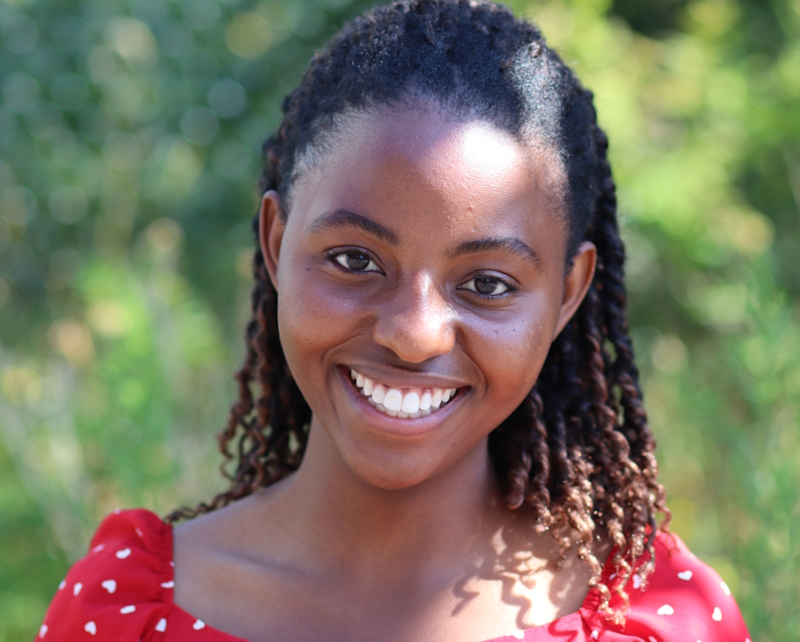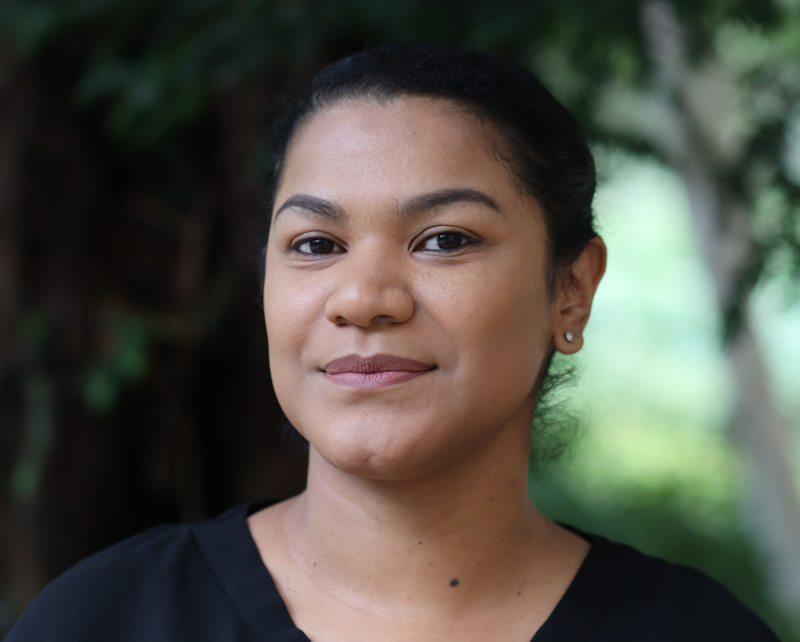Gloria Charite and Marcela Alves Lopes are at different stages of their research careers at Oxford. As part of Black History Month, Morgan Mitchell explores their unique paths into academic research, barriers they've faced, and how their backgrounds have shaped their experiences.

Gloria Charite, experimental psychology MSc
Gloria is currently on the prestigious Rhodes Scholarship programme within the Department of Experimental Psychology at the University of Oxford, and will upgrade to a full PhD student later this year. Her story started in Rwanda where she grew up in a then rural neighbourhood without running water or electricity. Her prospects changed when her father got a new job in the nearby city. Due to her family’s move, she found herself at a competitive all-girls school where she excelled in national exams and emerged as the top of her class. It was then that her teachers encouraged her to look beyond Rwanda—to places like Columbia University in New York. Gloria confessed, “All I knew about the US was from the film Coming To America!” After applying to Columbia, she learned of her acceptance through a friend’s call as she herself had no good internet access, initially thinking it was a prank.
Throughout her studies, she became fascinated with memory—an interest that stemmed from her own experiences as a student. She felt as though she was constantly trying to remember lecture material for exams and often wondered if there was a systematic pattern underlying her memory of the topics she couldn’t remember as well. She excelled at Columbia; however, she was still apprehensive about applying to such a competitive course at Oxford – it was her dad, her biggest inspiration, who reminded her: “If your dreams aren’t scaring you, they probably aren’t big enough.” Her research now focuses on memory mechanisms, while her goal is to use her expertise to advance research in brain sciences in developing countries including in her home country, Rwanda.

Marcela Alves Lopes, software engineer and computer science PhD
Marcela has worked as a scientist in software engineer roles and is currently a PhD student in the Department of Computer Science at the University of Oxford. Her journey started in the rural parts of Northern Brazil.
Marcela says, “In our community, the paths laid out [ahead of] us were clear: women helped at home, men worked in the fields.” It was never expected that Marcela would pursue education, but she developed an aptitude and a love for mathematics at high school and fought to follow her passion. Marcela’s determination awarded her scholarships to study computer science as both an undergraduate (where she received the highest grades in her year) and a master’s student at the University of São Paulo. She described undertaking both degrees as transformative experiences that immersed her in not only new academic environments but cultural ones too.
Marcela’s desire to dive deeper into economic theory brought her to Oxford. Her research focuses on the combination of computer science and financial forecast modelling which can be used to predict how external events, e.g. new epidemics, impact job markets. Specifically, she develops statistical algorithms to improve these models. She sees this research as essential to creating real impact for the labour market in Brazil. She says, “Education has been my way out of poverty, and I believe it can be the same for many others.” Marcela hopes her story will inspire other young people in her home country of Brazil to value education too.
Gloria and Marcela’s full stories and photos form part of the photography exhibition “Other Than Oxford”, started by neuroscience PhD student, Morgan Mitchell. The project showcases the journeys of nine University of Oxford students and researchers from underrepresented backgrounds at different stages of their research careers.
“Other Than Oxford” opens at Reuben College, Oxford in November and @otherthanoxford on Instagram.
This post has been written as part of the Reclaiming narratives: ScienceWrite blog series which highlights the lives and achievements of extraordinary scientists from minoritised groups.






